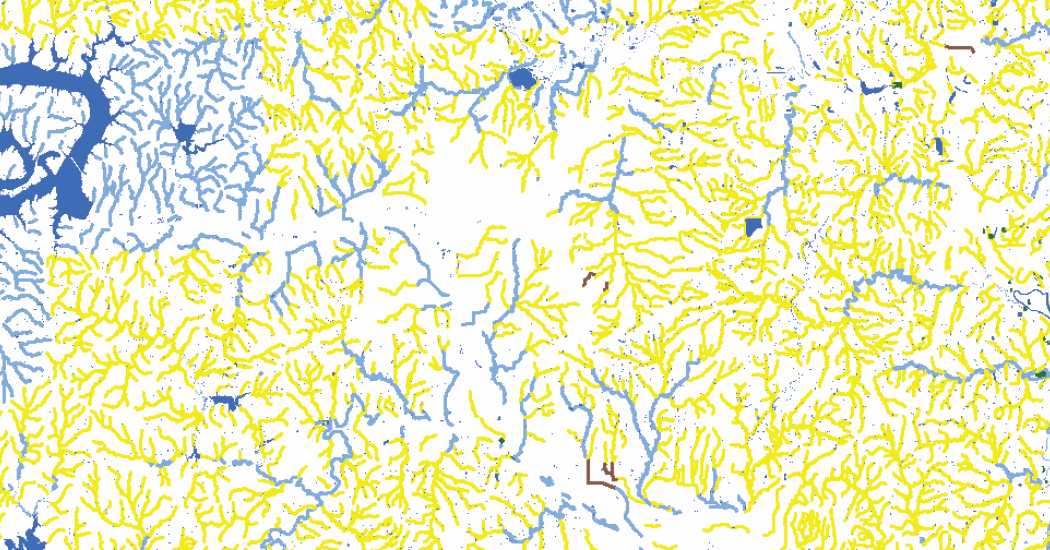Oklahoma AG Scott Pruitt: EPA and "waters of the United States"
Second in a series of reports from BatesLine's interview with Oklahoma Attorney General Scott Pruitt at Americans for Prosperity's Defending the American Dream Summit, August 29, 2014, in Dallas
When Scott Pruitt took office as Oklahoma's Attorney General in 2011, he established what he calls his special ops team, a federalism unit assigned to monitor executive orders and regulatory actions and to take legal action when a federal agency exceeds the authority granted by federal law and the Constitution.
When Pruitt sat down with the BatesLine team Friday afternoon, I asked Pruitt to name an issue his federalism unit was pursuing that might not be on the public's radar. He told me about the EPA's proposed change to the definition of what constitutes the "waters of the United States." Effectively, the EPA is seeking to expand the territory regulated by the Clean Water Act, extending federal control over local decisions regarding land use, farming, and oil and gas exploration. The proposed rule was issued in April, and the public comment period closes in October.
The EPA's authority under the Clean Water Act is tied to Congress's power to regulate interstate and foreign commerce. Historically this has meant navigable streams and significant tributaries to those streams. The proposed rule is broad enough to include drainage ditches. Ultimately nearly every square inch of territory -- lawns, rooftops, streets, storm sewers -- could act as a conduit carrying water into a navigable body of water.
Pruitt described two maps: The map of the current definition, with regulated waters in blue, was mostly white. But maps prepared by the EPA around the time it announced its proposed rule show numerous small tributaries, many of them intermittent. At the insistence of the House Science Committee, the EPA released the national map and individual state maps that had been prepared by INDUS Corporation under contract with the EPA. The map for Oklahoma in the vicinity of Tulsa shows not only major streams like Bird Creek and Mingo Creek, but tiny unnamed and intermittent tributaries of smaller creeks like Crow Creek, Swan Creek, and Mill Creek. Additionally, numerous small dots scattered across the map mark ponds. Strangely, the main stream of major rivers like the Arkansas, Cimarron, Verdigris, Canadian, and Grand are not shown.

While the EPA says that these maps were not intended to reflect Clean Water Act jurisdiction under the proposed new rule, the categories on the map line up with those in the rule.
Pruitt says that there is clearly a need for a federal arbiter like the EPA to deal with water quality and air quality issues that cross state lines. The problem comes when the EPA tries to go beyond its statutory authority and "pick winners and losers." For example, a claim of expanded jurisdiction under the Clean Water Act could be used to inhibit fossil fuels exploration and production, an indirect means to accomplish a purpose that would be rejected by our elected representatives in Congress.
Pruitt's office is filing a comment on behalf of the State of Oklahoma, and he says that other states are watching the issue and may also comment. "The EPA is saying that folks are overreacting.... We'll see. That's why they have the notice and comment process. We'll file a comment, see if they respond to it, prayerfully they'll address it and provide clarity." If the EPA moves forward with a rule that exceeds their statutory authority, the end result may be a legal challenge.
Beyond the EPA and federal/state issues, Pruitt says that water resource issues are going to be dominant for the State of Oklahoma for the next several years. In June 2013, the U. S. Supreme Court issued a unanimous decision in Tarrant v. Herrmann, upholding Oklahoma's right to protect its water resources. (Stateimpact has more on the Red River Compact and water-rights issues.)
MORE: Rob Port has written about the EPA's proposed rule and map and its impact on North Dakota. In December the Daily Caller discussed the proposed rule and EPA's claims of economic benefit.
UPDATE 2014/09/08: The U. S. House may vote Tuesday on a bill to preempt the EPA's proposed rule: The Waters of the United States Regulatory Overreach Protection Act of 2014 (H.R. 5078)
0 TrackBacks
Listed below are links to blogs that reference this entry: Oklahoma AG Scott Pruitt: EPA and "waters of the United States".
TrackBack URL for this entry: https://www.batesline.com/cgi-bin/mt/mt-tb.cgi/7304